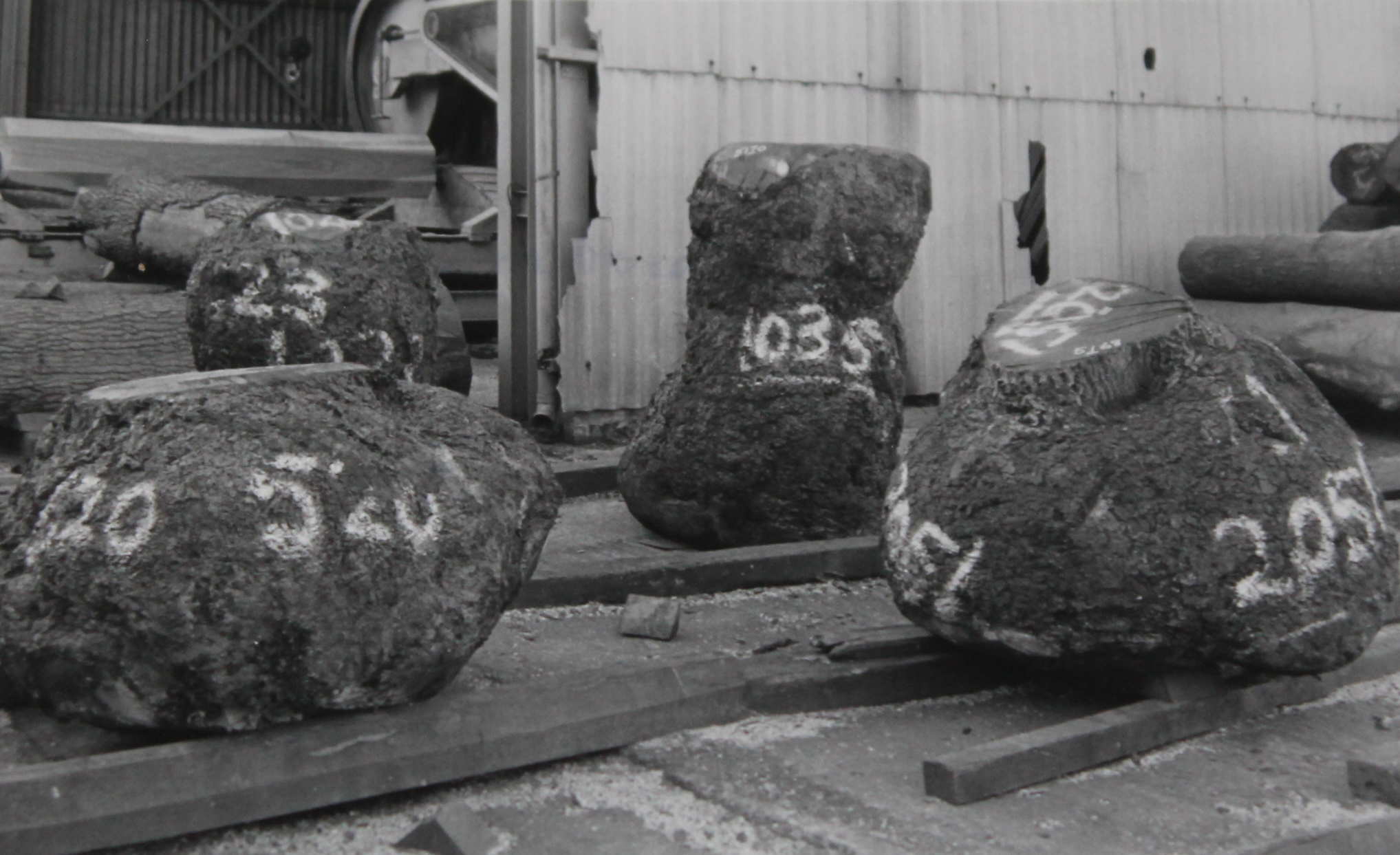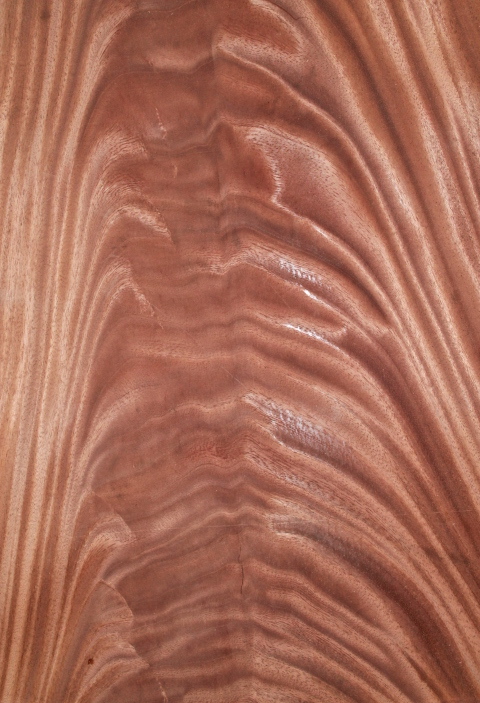|
RELIANCE VENEER has seen competitors come and go over the past 47 years and now claims to be the last remaining British cutter of sliced and peeled decorative veneers. Jane Muggeridge finds out how this London company has managed to see off most of its challengers, specialising and diversifying to ensure it's first past the flag.
Mr Steinberg has been in the Veneer Industry a long time. He started off working as a veneer importer and trader in 1946, and then set up a partnership with the late Harry Reuben in 1948 when they formed Reliance Veneer Co Ltd. Today the company claims to be the last British cutter of sliced and peeled decorative veneers and also has extensive property interests in the local area.
" At first we were just importers, but, in 1964, we took over this old mill on a 2 acre site, chucked out all the old equipment, put in new plant and started manufacturing" he says.
The company now has a turnover of £10 million and carries more that £3 million worth of decorative veneer stock, comprising more than 120 different species from Europe, North America, South America, Asia and Africa.
It can supply veneer varying in thickness from .5mm to 4mm; and its investment in high- precision machinery has given Reliance Veneer the ability to cut fine veneers, giving high yields and large numbers of matching leaves from each piece of timber.
In 1992, The partners de-merged their activities and Mr Steinberg retained the manufacturing plant. Mr Steinberg expresses regret at the demise of the UK veneer industry. "When we first started there were many veneer manufacturers here in the UK but the mistake they made was not investing in new equipment, which means they could no longer remain competitive against the more modern European factories. Slowly the UK veneer manufacturers closed down one after the other.
Reliance Veneer have made it their trade to specialise in unusual or difficult species to produce.
" We do things that no one else in the country can, such as walnut burrs/ burls and mahogany curls/ crotch, which are both difficult species to produce properly, explains Mr Steinberg.
Walnut Burrs/ burls are heavily knotted cankers, which form at the graft between the trees's root and trunk, and which can grow to a huge girth. Mr Steinberg's son, Michael, who has taken over the responsibility of sourcing all the timber for the company, refers to the walnut burrs/ burls as" uncut diamonds". I decide exactly how to cut each burr/ burl." The large logs are segmented into 2, 3 or 4 pieces depending on the shape of the burr/ burl. If a log has a good consistent shape then we may peel it in one piece. This can result in veneer sheets up to 10' long as we have one of the biggest peelers in the world specifically for this type of operation", say's Michael.
Reliance Veneer manufactures approximately 2000m2 of walnut burr/ burl every day and each pieces has a sales value of between £4,000 and £8,000, although recently a very special burr/ burl was produces that sold for over £100,00." We had a great day watching this burr/ burl being produced. The anticipation prior to peeling kept me up at night as there is a tremendous risk that the log would fail. As it happens it was one of the most stunning walnut burr/ burls I have ever seen and to this day we have not seen anything similar. I feel it was a once in a lifetime event, say's Mr Allen Production Director.
 In 1993 Reliance Veneer started producing mahogany curls/ crotches, which uses timber from the junction of the tree trunk and the first branches." the hardness of the wood and complexity of the grain makes mahogany curl/ crotch very difficult to slice. But we have mastered the technique and now our mahogany curl/ crotch production is perfect. Today we are producing over 15,000m2 per month and it is used solely by the antique reproduction trade. In 1993 Reliance Veneer started producing mahogany curls/ crotches, which uses timber from the junction of the tree trunk and the first branches." the hardness of the wood and complexity of the grain makes mahogany curl/ crotch very difficult to slice. But we have mastered the technique and now our mahogany curl/ crotch production is perfect. Today we are producing over 15,000m2 per month and it is used solely by the antique reproduction trade.
Mr Steinberg attributes much of the continued success of Reliance Veneer to the skill of its 65 employees- many of whom have been witht he company for many years." They have such specialist knowledge, they are impossible to replace", he says.
The company has around 400 customers - many of whom are long standing. Around 25% of its business is accounted for by exports - mainly to - America, the Middle East and Germany.
Today, however, its largest single market is the car industry, which takes 50% of its veneer production." German and American car manufacturers buy our veneer for the dashboard fascias, steering wheels and trim on their premium cars," says Mr Steinberg.
Other important markets are furniture manufacturing, boat building, panelling production and the architectural sector.
In a fast moving world its nice to see Reliance Veneer at the front of the pack when it comes to supplying competitively - priced quality veneer.
|